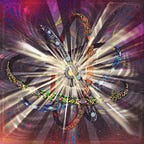Q&A: What’s up with “War and Peace”?
Q: Reading War and Peace, what did you learn about war ?
A: That it’s brutish and folly. That no one knows what they’re doing and everything’s a mess. That people get killed right in front of your face and life doesn’t stop for a split-second cause your own head’s constantly on the line. That in war - when your knocking on the doors to death - the little things start to be the big ones. Gazing at a tree, the roots suddenly possess a poetic quality: the bark seems more brown, and the leaves appear more green. In war, when every breath might be your last, the sky is more blue, the smells are more pungent, and there’s no time for delay, life happens now. In reading War and Peace I learned war makes you a man real fast; and that even in its raw comradeship, in the midst of the most intense circumstances, you must strive to be light on your feet, composed of grace and levity.
Q: Reading War and Peace, what did you learn about peace?
A: I learned peace is something you find within yourself. I learned that no life philosophy, no privileged conditions or any sort of success necessitate the presence of peace in your life. I learned that it (peace) finds us and leaves us mercurially, in wartime and in “peacetime”; that there’s an ebb and flow to existence. That sometimes when you feel farthest from peace your actually closer to it than you’ve long been.
Q: Reading War and Peace, what did you learn about history?
A: Tolstoy wrote “History has as its subject not the will of man itself , but our notion of it” (1204). He believed freedom, in the purest sense, is a fiction. And in his scientific approach to history, Tolstoy totally upped the game for the field of study; both within the means (research), and the ends (explaining it). In a way, Tolstoy’s treatment of history stood on the shoulders of Adam Smith and Charles Darwin, as he essentially formulated his own social-science theory of history.
For Tolstoy, our will is not free. “If there is just one law that governs the actions of men, then there can be no free will, for the will of men would have to submit to that law” (1200). We submit to the law of gravity, for instance — we’re never entirely free. A simple axiom Tolstoy steadily harps on in the epilogue.
For a man to have truly free will, explains Tolstoy, he must exist outside of space and time, for the present is “at the border of past and future” (1209), and subject to their (past and future) forces, and, “a being who is not affected by the influences of the external world, who is outside time and does not depend on causes, is no longer a man” (1209). Tolstoy suggests that what we consider freedom is actually us consciously fabricating a story, covering what’s underneath: an inevitable necessity.
He goes on to elucidate the dichotomy between freedom and necessity, essentially describing it as a reactionary chain of events that happens beyond the scope of human influence. “Freedom is that which is examined. Necessity is that which examines. Freedom is content. Necessity is form” (1210). As he adds more explanations to make his point, he sums it up in short, “to imagine a man who is completely free, not subject to the law of necessity, we must imagine him alone, outside space, outside time, and outside any dependence on causes” (1210).
Q: Do you agree with him?
A: In many ways yes, but I’ll hold out hope there’s still some bit of space and time — even if it’s just a partially free moment here or a moment there — where we can manifest our freedom and will, and take responsibility for our actions and lives.
Q: Why is Pierre Buzokov such a great character?
A: Pierre is great because for the first 350 pages or so I didn’t know what to make of him. This fat, bastard child of a Count, who comes back from abroad and inherits his father’s whole estate, Pierre Buzokov was at first a total drag — with his stupor in the face of fortune and his absentmindedness. We see Pierre gets the easiest life handed to him, and then we watch as he seems to fumble it on the hand off. In fact, Pierre seems to actively make it hard on himself. And yet, in his apathy to what’s presented to him, there’s a longing for something else, for something greater. He goes along with the world as it is, but yearns to shake something up — if only he knew what. We begin to understand him more and more: he’s tired of the flat, fake, Julie Kuragin parties; he senses something more substantial beyond the life of fancy. There’s some void in Pierre’s life, which he must go and actively fill. And this is where his arc heats up, where Pierre winds up mingling with freemasons, and takes the next step in what becomes a long existential quest for purpose. His epiphanies about how to live, his notions about God and his mystical inclinations, are all part of the process that becomes his spiritual awakening. We observe it unfold, in moments of peace, in moments of war. And after his strange yet heroic journey during the French Invasion of Moscow, after his marriage to Natasha, at the very end, when they’re all together married with kids, and Pierre returns home to Moscow after a business trip in Petersburg, we sense the man who walks through that door is someone we know, someone we’ve laughed at and with, and someone we’re genuinely happy to see succeed and flourish in creating the life he has for himself.
